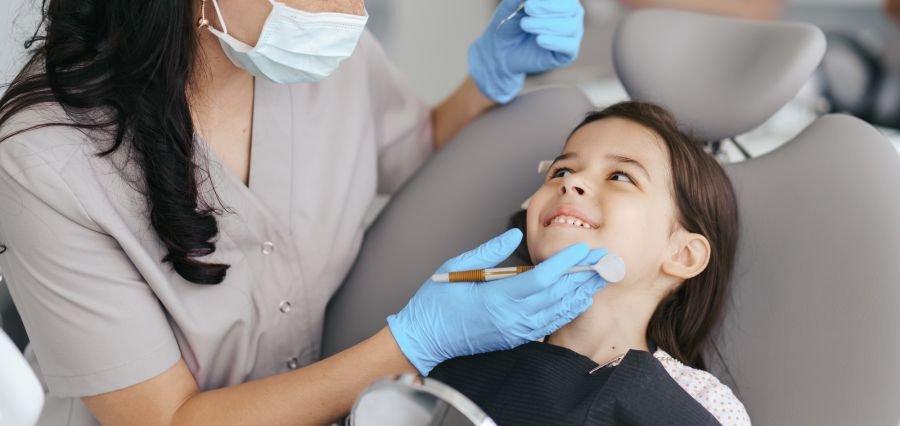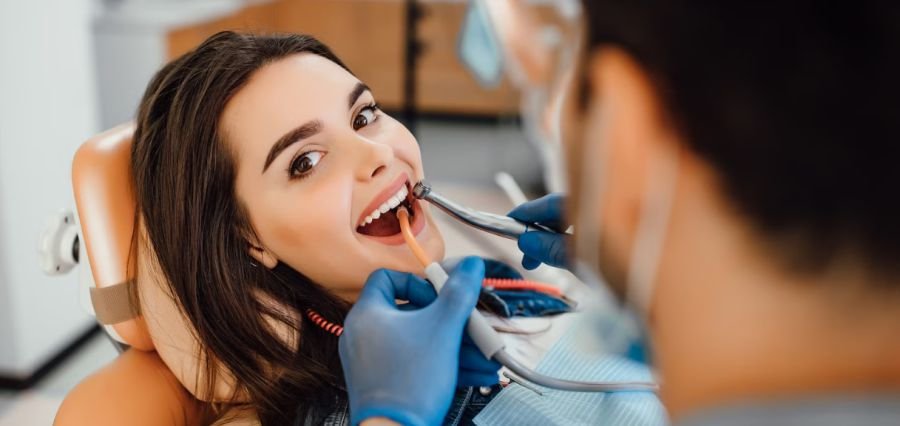At InsightsCare, we have often been asked about rapid detox and its safety and efficacy. Let’s break down the basics and get answers with our latest resource.
Rapid detox is a medical procedure that aims to shorten the duration of withdrawal symptoms from substances such as opioids and alcohol. The process typically involves the administration of anesthesia and medications that quickly cleanse the body of drugs while the patient is unconscious.
While the concept may sound appealing, the procedure is not without risks and controversies, and it is important to consider the role of health insurance in covering such treatments and answer the question: does insurance cover rapid detox?
Many professionals in the behavioral health field express concerns about the safety and efficacy of rapid detox, especially regarding its long-term outcomes. The procedure has been criticized for lacking sufficient research to back its claims and for potentially exposing patients to unnecessary medical risks.
Understanding Rapid Detox
Definition and Purpose of Rapid Detox
Rapid detox, also known as ultra-rapid detoxification or anesthesia-assisted detoxification, is a medical procedure designed to expedite the withdrawal process from substances such as opioids, alcohol, or other drugs.
The primary goal of rapid detox is to minimize the duration and intensity of withdrawal symptoms, making it an appealing option for individuals struggling with addiction.
During the procedure, patients are placed under anesthesia while medications are administered to cleanse the body of the addictive substances. This approach aims to reduce the discomfort and distress associated with withdrawal, allowing patients to bypass the most challenging phases of detoxification while unconscious.
However, it’s essential to understand that rapid detox is not without its risks and controversies. While the idea of a quick and less painful detox process is attractive, the procedure’s safety and long-term effectiveness remain subjects of debate among medical professionals.
As with any medical treatment, it’s crucial to weigh the potential benefits against the risks and consider all available options.
Comparison to Traditional Detox Methods
Rapid detox stands in stark contrast to traditional detox methods, which typically involve a more gradual and controlled approach to managing withdrawal symptoms. Traditional detox methods often use a tapering strategy, where the dosage of the addictive substance is slowly reduced over time, or medications are administered to alleviate withdrawal symptoms.
This process can take several days to weeks, allowing the body to adjust gradually and reducing the intensity of withdrawal symptoms.
In comparison, rapid detox uses anesthesia or sedation to accelerate the detox process, often resulting in a shorter but more intense withdrawal experience. While traditional detox methods focus on providing a stable and supportive environment for patients to manage their symptoms, rapid detox aims to complete the detoxification process in a matter of hours.
This significant difference in approach can impact the overall experience and outcomes for patients, making it essential to carefully consider which method is best suited to an individual’s needs.
Key Differences Between Rapid and Medical Detox
The primary difference between rapid detox and medical detox lies in the duration and intensity of the detoxification process. Medical detox involves a more gradual approach, using medications to manage withdrawal symptoms over an extended period.
This method ensures that patients experience a smoother and more controlled transition through the detox process, with continuous medical supervision to address any complications that may arise.
In contrast, rapid detox seeks to expedite the detox process by using anesthesia or sedation, resulting in a shorter but more intense withdrawal experience. While rapid detox focuses primarily on the physical aspect of withdrawal, medical detox often provides a more comprehensive approach, addressing the underlying psychological and behavioral aspects of addiction.
This holistic approach can include therapy, counseling, and support groups, which are crucial for long-term recovery and relapse prevention.
By understanding these key differences, individuals can make more informed decisions about their detoxification options, considering both the immediate and long-term implications of each method.
Does Insurance Cover Rapid Detox: What You Need to Know
One of the most pressing questions individuals face when considering rapid detox is whether their insurance will cover addiction treatment costs. The answer often depends on several factors:
Insurance Coverage
Insurance providers play a significant role in determining the coverage options available for addiction treatment and detox services. The specifics of what is covered can vary widely depending on the insurance company, the plan, and the requirements such as copayments and deductibles.
Type of Insurance
Different insurance companies have varying policies regarding addiction treatment. Some may cover detox services, while others may not. In many cases, rapid detox is not included in standard coverage due to its controversial nature and the potential for high costs.
Medical Necessity
Insurance companies typically require a demonstration of medical necessity for treatment. This means that a healthcare provider must deem the rapid detox procedure or detox treatment essential for the patient’s health. However, proving medical necessity for rapid detox can be challenging, as traditional detox methods are often preferred by insurers.
Location
Coverage can vary by state. In Georgia, for example, some plans may offer coverage for detox services, but rapid detox may still be seen as a non-standard procedure. Therefore, it is crucial to contact your insurance provider for specific information regarding coverage.
Alternatives to Rapid Detox
As we will discuss later, many behavioral health experts recommend considering alternatives to rapid detox that may offer a more comprehensive and safer approach. These alternatives are often more likely to be covered by insurance.
Outpatient detox treatment is one such alternative, especially for less risky detox candidates, and is often covered by providers like UnitedCare.
The Financial Implications of Rapid Detox
Alcohol detox can be an expensive option for individuals seeking treatment. The costs of detox treatments may include:
- Facility Fees: The initial fee for the procedure at a detox center can be significant. Many facilities that offer rapid detox charge thousands of dollars for the procedure, which may not be covered by insurance.
- Anesthesia and Medications: The use of anesthesia and other medications during rapid detox adds to the overall cost. These medical expenses can quickly add up, especially if insurance does not cover them.
- Follow-up Care: After rapid detox, patients may require additional follow-up care to address underlying issues related to addiction. This can include therapy sessions, counseling, or participation in support groups, all of which may also incur costs.
- Potential for Additional Health Issues: Rapid detox can sometimes lead to complications that may require further medical treatment. These unexpected costs can be financially burdensome.
Safety and Effectiveness of Rapid Detox
Potential Risks and Safety Concerns of Rapid Detox
Rapid detox is associated with several potential risks and safety concerns that must be carefully considered. The use of anesthesia or sedation during the procedure can lead to serious complications, including respiratory problems, allergic reactions, and cardiovascular issues. Additionally, rapid detox can strain the liver and kidneys, potentially causing damage to these vital organs. Other risks include infections, worsening depression, and complications during pregnancy.
One of the significant concerns with rapid detox is that it may not adequately address the underlying psychological and behavioral aspects of addiction. Without comprehensive follow-up care, such as therapy and counseling, individuals may be at a higher risk of relapse. The procedure’s focus on the physical withdrawal process can leave patients without the necessary tools and support to maintain long-term sobriety.
It’s important to note that rapid detox is not widely accepted as a safe and effective treatment for addiction. Many medical professionals debate its use, citing the lack of sufficient research and the potential for serious complications. While some individuals may experience successful outcomes, the risks associated with rapid detox cannot be ignored. As with any medical procedure, it’s crucial to carefully weigh the potential benefits against the potential risks and consider alternative treatment options.
A Proven Georgia Medical Detox Option
For individuals seeking a more traditional and comprehensive approach to detoxification, a proven Georgia medical detox option may be the answer.
Medical detox centers in Georgia offer a structured environment with medical supervision to ensure the safety and comfort of patients.
Comprehensive Care
Medical detox programs typically include mental health treatment as part of comprehensive care.
Assessment and Evaluation:
Before beginning the detox process, patients undergo a thorough assessment to determine their medical history, substance use patterns, substance abuse issues, and any co-occurring mental health disorders.
This information is essential for developing a personalized treatment plan.
Medically Assisted Detox for Withdrawal Symptoms
Unlike rapid detox, drug detox programs use a gradual tapering method to reduce withdrawal symptoms safely. Patients receive medications to manage discomfort and cravings, ensuring a smoother transition.
Supportive Environment
Detox centers provide a safe, supportive environment where patients can focus on their recovery. With 24/7 medical supervision and access to counseling, patients receive the care they need.
Aftercare Planning
A solid aftercare plan is critical for long-term recovery. Medical detox programs typically include aftercare support, such as referrals to outpatient therapy or support groups, ensuring that patients have the resources they need for ongoing recovery.
This comprehensive approach to detoxification often aligns with insurance policies, making it a more viable option for many individuals seeking treatment.
A Leading ATL Detox Center Alternative
For those in the Atlanta area, a leading ATL detox center alternative provides a holistic approach to detoxification. This option focuses on the whole person, addressing physical, emotional, and psychological needs.
Additionally, the Substance Abuse and Mental Health Services Administration (SAMHSA) offers resources and a directory for state-funded rehab services, which can be crucial for low-income individuals seeking treatment.
Holistic Treatment Options
Some key features of a leading ATL detox center include:
- Individualized Treatment Plans: Each patient receives a customized treatment plan based on their unique needs and circumstances. This personalized approach increases the chances of successful detox and recovery.
- Therapeutic Modalities: In addition to medical detox, these centers often incorporate various therapeutic modalities, such as cognitive-behavioral therapy (CBT), motivational interviewing, and mindfulness techniques. These therapies can help patients build coping skills and address underlying issues related to addiction.
- Support Groups and Community: Many ATL detox centers emphasize the importance of community and peer support. Patients are encouraged to participate in group therapy sessions and support groups, fostering connections with others who are experiencing similar struggles.
- Life Skills Training: Preparing for life after detox is essential for sustained recovery. Leading detox centers often offer life skills training to help patients develop essential coping mechanisms and life strategies for managing stress and avoiding relapse.
By opting for a comprehensive detox program at a leading ATL detox center alternative, individuals can increase their chances of successful recovery while receiving support for their physical and emotional well-being.
Rapid Detox is Not the Only Option for Covered Detoxification
We hope our latest resource has shown how understanding whether insurance covers rapid detox requires careful consideration of various factors, including insurance type, medical necessity, and location.
While rapid detox may seem appealing, it carries risks and financial implications that can be burdensome for many individuals.
For those seeking effective detoxification, a proven Georgia medical detox option or a leading ATL detox center alternative can provide comprehensive care and support.
These alternatives focus on the individual’s overall well-being and are more likely to align with insurance policies, making them a safer and more sustainable choice for individuals on their path to recovery.
If you or someone you know is considering detoxification, our team at InsightsCare encourages you to reach out to healthcare professionals for guidance. Understanding your options and finding the right support can make all the difference in achieving lasting recovery.
Read More: Click Here










